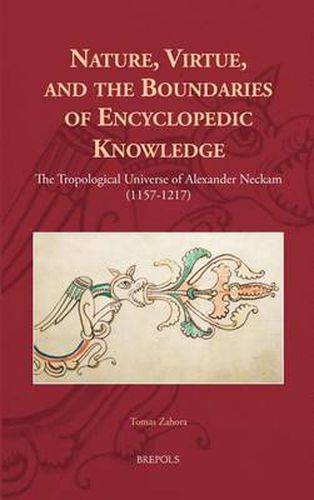Readings Newsletter
Become a Readings Member to make your shopping experience even easier.
Sign in or sign up for free!
You’re not far away from qualifying for FREE standard shipping within Australia
You’ve qualified for FREE standard shipping within Australia
The cart is loading…






Can - and should - an encyclopedia be a repository of all knowledge? Does the idea of total encyclopedic knowledge constitute a boon for readers, or is it a labyrinthine nightmare? This book explores the pleasures and paradoxes of encyclopedism, viewed through the interpretative lenses of the works of Alexander Neckam (1157-1217), an English Augustinian canon and scholar. Neckam wrote not just one but two encyclopedias: the prose De naturis rerum (‘On the natures of things’) and the verse Laus sapientie divine (‘Praise of divine wisdom’). Poised between the end of the ‘renaissance’ of the twelfth century and the scholasticism-inspired thirteenth century, Neckam invites us into an unfamiliar universe in which encyclopedias are intentionally incomplete, and in which warnings about the vanity of knowledge coexist with vivid descriptions of new technological inventions. This strange union is facilitated by the exegetical method of tropology or moral reading. Through analogy, vivid imagery, and constant recourse to ethics, Neckam’s encyclopedias aim to educate their readers until they leave the text behind and engage in a reading of the world in a quest for knowledge, experiencing not only its pleasure and beauty, but also its inherent power.
$9.00 standard shipping within Australia
FREE standard shipping within Australia for orders over $100.00
Express & International shipping calculated at checkout
Can - and should - an encyclopedia be a repository of all knowledge? Does the idea of total encyclopedic knowledge constitute a boon for readers, or is it a labyrinthine nightmare? This book explores the pleasures and paradoxes of encyclopedism, viewed through the interpretative lenses of the works of Alexander Neckam (1157-1217), an English Augustinian canon and scholar. Neckam wrote not just one but two encyclopedias: the prose De naturis rerum (‘On the natures of things’) and the verse Laus sapientie divine (‘Praise of divine wisdom’). Poised between the end of the ‘renaissance’ of the twelfth century and the scholasticism-inspired thirteenth century, Neckam invites us into an unfamiliar universe in which encyclopedias are intentionally incomplete, and in which warnings about the vanity of knowledge coexist with vivid descriptions of new technological inventions. This strange union is facilitated by the exegetical method of tropology or moral reading. Through analogy, vivid imagery, and constant recourse to ethics, Neckam’s encyclopedias aim to educate their readers until they leave the text behind and engage in a reading of the world in a quest for knowledge, experiencing not only its pleasure and beauty, but also its inherent power.